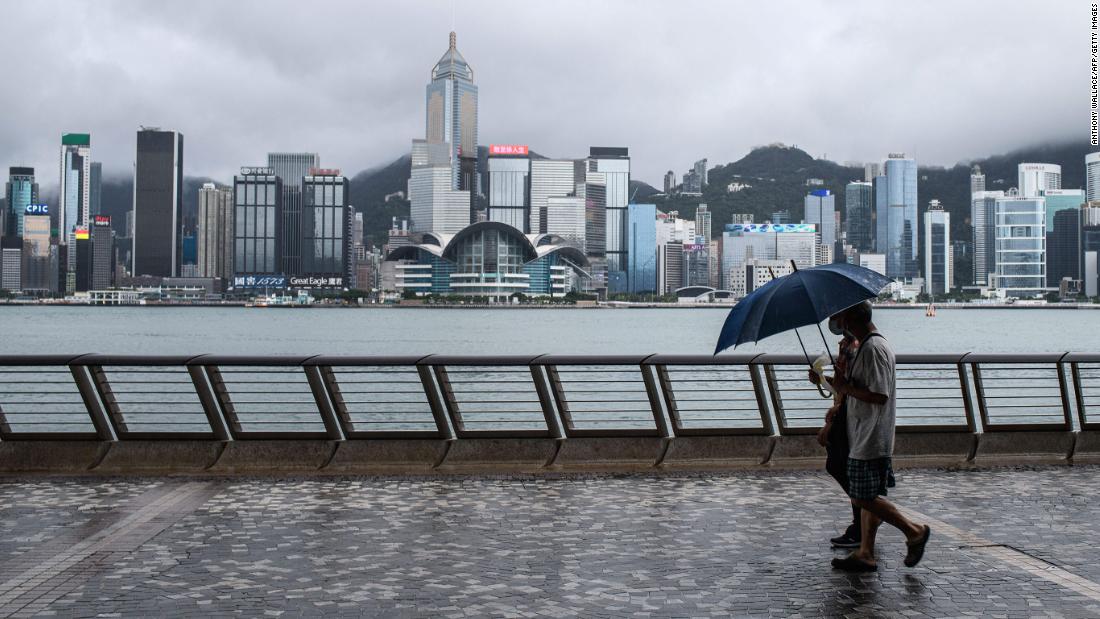On Wednesday, the Heritage Foundation, a conservative Washington think tank, revealed its annual ranking of the world’s freest economies, leaving the former British colony off the list.
The organization said it is counting the city, as well as Macau – another special administrative region controlled by China – as part of China, following a change in its methodology that means that the index will only rank “independent countries where governments exercise sovereign control over economic policies. “
“Without a doubt, Hong Kong and Macau, as special administrative regions, enjoy economic policies that, in many ways, offer their citizens more economic freedom than is available to the average citizen of China, but developments in recent years have unequivocally demonstrated that these policies are ultimately controlled by Beijing, “the foundation’s researchers said in a statement.
Before last year, Hong Kong dominated the list for more than a quarter of a century since its inception. But it was toppled by Singapore in 2020, “mainly due to a decline in Hong Kong’s investment freedom score,” according to the Heritage Foundation.
Singapore remains the best-ranked economy on this year’s list, followed by New Zealand, Australia, Switzerland and Ireland. China is in the bottom half, 107th out of 184 countries.
The top five countries “achieved very high rates of economic freedom, 80 or more,” wrote researchers at the foundation. The score is assessed by several criteria, including the opening of markets in each territory, the efficiency of regulators in encouraging freedom of business and work and the degree of demand for the rule of law to protect property rights.
Hong Kong’s top financial official, Paul Chan, criticized the Heritage Foundation for excluding the city from the index on Thursday.
“I do not agree that our economic policy has been taken over by the central government,” he said during a webinar conducted by the South China Morning Post. “It seems to me that when they reached that decision, it must have been overshadowed by their ideological bias and political prejudice.”
A Hong Kong government spokesman said in a statement that excluding the territory from the ranking “was neither guaranteed nor justified”. Hong Kong is a member of the World Trade Organization, the spokesman noted, and concludes trade, tax and investment agreements as an individual economy.
“Hong Kong is and always will be an open, safe, vibrant and pluralistic international financial and commercial center, underpinned by economic freedom, the rule of law and judicial independence,” added the spokesman.
Hong Kong has long been seen as a vital business hub that connects East and West. Even after the city moved from Britain to China in 1997, it has maintained its image for decades as an international gateway to the continent, aided by a promise by Beijing to maintain its semi-autonomous status.
Since 2019, however, experts have warned that their unique differences may be at risk, as Chinese officials seek to take a firmer stance on Hong Kong affairs. It was then that huge protests broke out in the city over an extradition project, which ended up becoming a movement that called for full democracy. The turbulence with the demonstrations at the time forced the closing of stores, interrupted some public transport and hampered the economic growth of the city.
Last summer, Hong Kong faced another test when China passed a comprehensive national security measure for the city. The law prohibited sedition, secession and subversion against Beijing and allowed the security of the Chinese state to operate in the territory.
The move raised questions about whether the city’s reputation – and the ability to attract business – would be harmed. The main local authorities, however, have argued that this helps the city to restore calm and order.
Tensions between pro-democracy activists and officials remain. Earlier this week, hundreds of protesters risked arrest for demonstrating before a Hong Kong court when 47 pro-democracy activists accused of subversion under national security law appeared.
There are also signs that the city’s role in international finance is changing. Over the past year, Hong Kong has become a popular place for Chinese technology companies to list their shares, especially as tensions remain over Chinese companies that publicly trade in the United States.
– Eric Cheung and the CNN team contributed to this report.
